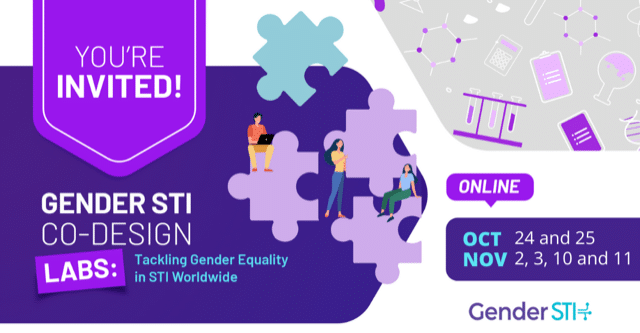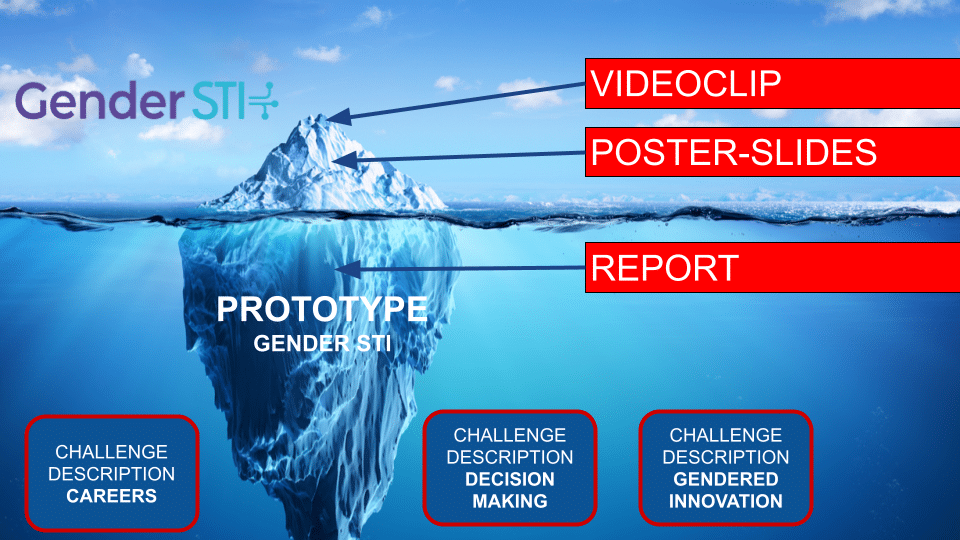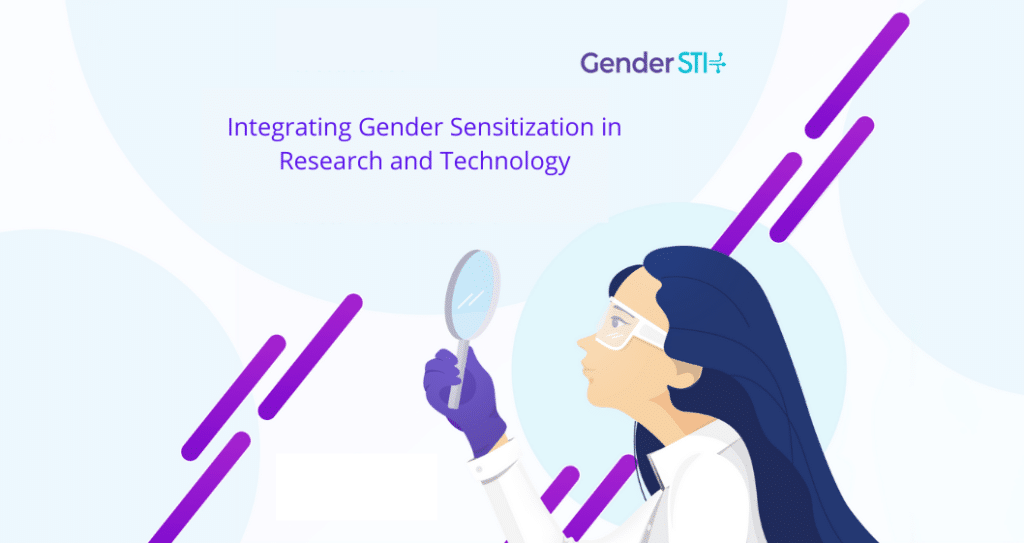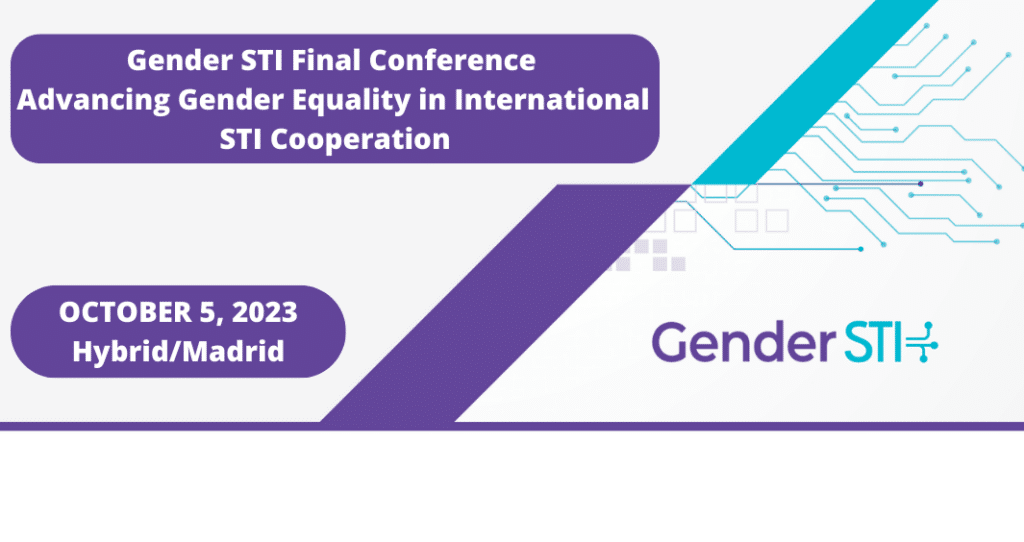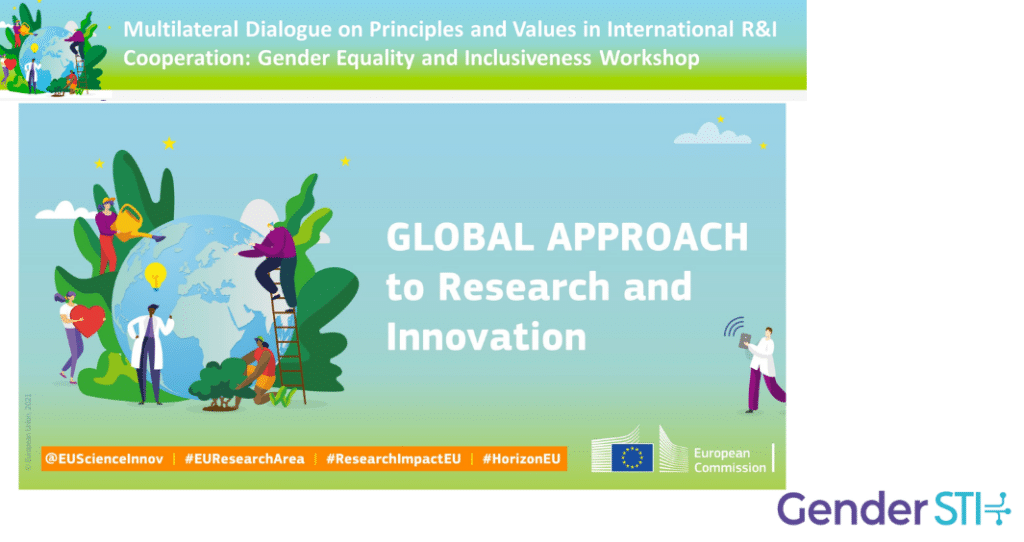During the past three weeks the Gender STI Project has been hosting their second edition of the Co-Design Labs, addressed to enhance the integration of the gender perspective in science, technology, and innovation (STI) through international dialogues. We were thrilled to welcome experts, researchers, company representatives, funding agencies, consulting companies, and universities to the co-design labs. These workshops which focused on three forefront challenges facing women in STI: gender equality in scientific careers, gender balance in decision-making, and the gender dimension in research and innovation content.
The event included more than 60 participants coming from 18 countries across four continents . To facilitate the participation of experts from different time zones, two Labs were held: the America & Europe Lab and the Asia, Africa & Europe Lab, hosting three sessions each. The Labs addressed different thematic areas for each challenge and co-designed a number of prototypes.
The first session considered reframing each of the three challenges these being
Gender equality in scientific careers
Themes:
- Gaining women in STI
- Retaining women in STI
Gender balance in decision making bodies and positions
Themes:
- Supporting women in decision making
- Inspiring women in STI
Integration of the gender dimension in research and innovation content
Themes:
- Enhancing inclusive knowledge production cultures in STI
- Enhancing capabilities for inclusive knowledge production
The purpose of this session was to brainstorm in each group the challenge context, why is this considered a threat, specific objectives, as well as to identify all possible areas that should be considered on the future prototype. Following this, the next session was devoted to build the initial prototypes which would lead to generate recommendations and insights for the future. Hence during session two, participants used the information already gathered towards the prototype design process through generating the first ideas, enhance a deeper understanding and revisit opportunities.
The co-creation process of the prototypes consisted of defining the challenge objectives, actors involved, beneficiaries, and outlining the roadmap towards the implementation of the prototype with activities in the short term (6 weeks), medium term (6 months) as well as its impact on society on the long term (6 years).
On the third and last session, once the prototypes designs were defined, the different prototype groups had the opportunity to test their feasibility by facing an inter-challenge consultation. The groups presented their prototypes and received feedback from other challenge participants, providing them their general thoughts, possible changes, and recommendations to enhance the prototypes performance.
On the coming months, the successful development of the 11 prototypes created in the labs will continue through the implementation of the activities outlined in the roadmap. These will be later illustrated on a report, poster-slides and videoclips for everyone’s access. Stay tuned!
